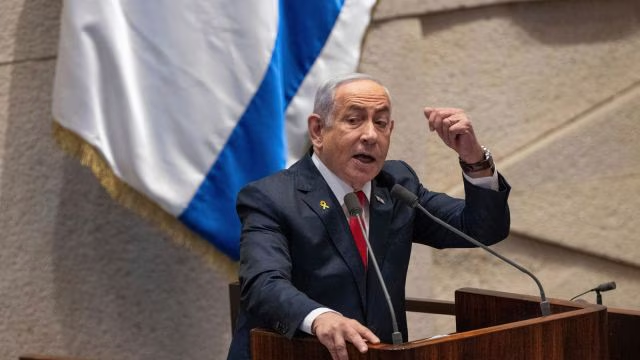November 28, 2024 — In a significant diplomatic breakthrough, Israel and Hezbollah have agreed to a ceasefire after 14 months of intense conflict. This agreement, brokered by the United States and France, marks a pivotal step toward restoring peace in a region that has seen decades of hostility.
Israel and Hezbollah Ceasefire Agreement Details
The ceasefire agreement includes several key terms designed to de-escalate tensions:
- Withdrawal of Forces: Hezbollah will withdraw to north of the Litani River, about 40 kilometers from the Israel-Lebanon border. At the same time, Israeli forces will pull back from their positions in southern Lebanon.
- Deployment of Peacekeepers: The areas vacated by both sides will be secured by 5,000 Lebanese army personnel and a United Nations peacekeeping force to maintain stability and prevent further hostilities.
- Monitoring Mechanism: A five-nation panel led by the United States will oversee the implementation of the agreement, ensuring both sides adhere to the terms.
The ceasefire becomes effective on November 27, 2024, marking a crucial milestone in the quest for regional stability.
Motivations Behind the Ceasefire
Israeli Prime Minister Benjamin Netanyahu has endorsed the ceasefire, highlighting both strategic and operational benefits:
- Strategic Refocus: With the ceasefire in place, Israel can shift its military focus to threats posed by Hamas in Gaza and concerns about Iran’s influence in the region.
- Resource Optimization: The prolonged conflict has strained Israeli military resources. The ceasefire provides an opportunity for the Israeli Defense Forces (IDF) to replenish supplies and recalibrate strategies.
- International Diplomacy: The truce aligns with broader international efforts, particularly those led by the U.S. and France, to bring stability to the Middle East.
For Hezbollah, the ceasefire allows the group to consolidate its position in Lebanon and address internal political and economic challenges. The group has also faced mounting pressure from international sanctions and the Lebanese government.
Reactions and Implications
- For Lebanese Civilians: The ceasefire is a welcome respite for thousands of displaced families, many of whom are cautiously returning to their homes in southern Lebanon. However, safety and infrastructure concerns remain pressing issues.
- In Israel: Public opinion on the ceasefire is divided. While many see it as a necessary step toward stability, others fear Hezbollah may use the ceasefire to regroup and rearm.
- The International Community: The agreement is viewed as a diplomatic victory, especially for the United States, which played a significant role in mediating the truce. European nations have also praised the agreement, emphasizing the need for continued monitoring and humanitarian support.
Challenges Ahead
While the ceasefire brings hope, several challenges lie ahead:
- Enforcing the Terms: Ensuring that Hezbollah retreats north of the Litani River and that Israeli forces stick to the withdrawal schedule requires vigilant monitoring.
- Preventing Resurgence: There are concerns that Hezbollah may use the ceasefire to rebuild its military infrastructure and rearm, potentially setting the stage for future conflicts.
- Addressing Humanitarian Issues: The conflict has left many casualties and displaced families. Humanitarian organizations must focus on rebuilding communities and providing essential services in affected areas.
- Regional Dynamics: The ceasefire impacts the geopolitical balance in the Middle East. With Iran’s influence in the region under scrutiny, the agreement may shift alliances and strategies among key players.
Conclusion
The Israel-Hezbollah ceasefire agreement represents a crucial step toward achieving peace in the Middle East. While the deal offers a framework for stability, its success hinges on the commitment of both parties to adhere to the terms and the effective implementation of monitoring mechanisms. For the international community, this ceasefire underscores the importance of sustained diplomatic engagement and humanitarian efforts in addressing the underlying causes of conflict.
The coming months will be critical in determining whether this truce can transform into a long-term solution or merely serve as a temporary pause in hostilities. For now, the ceasefire provides a glimmer of hope in a region long yearning for peace and stability.
Check out today’s gold Rate : Gold Rate Today – 28th November 2024

